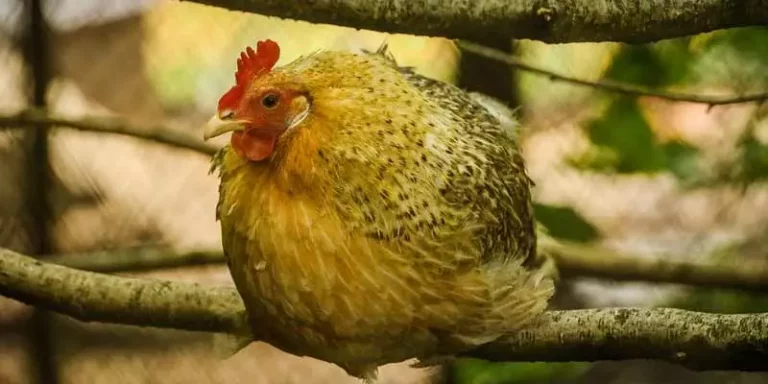If you’re hoping to raise chickens for their eggs, you should be aware that how much they sleep may vary quite a bit depending on where they live.
In this article, we will find out how much should a chicken sleep and how can you help them sleep better.
How Much Should A Chicken Sleep?
The amount of sleep that your chicken gets depends on their age and whether they are a meat or egg-laying breed.
Egg-laying breeds will sleep more than meat birds. A young bird will sleep about 15 hours per day, but this number drops as the bird ages. After about one year, an adult hen will only need about 8-10 hours of sleep per day. Some birds may require less than this amount, while others may need more.
Meat birds should not be allowed to sleep for more than 12 hours each day. This is because it is important for these birds to reach market weight as quickly as possible so that there is less chance of them getting sick from being overfed and under-exercised.
Things That Affect How Much Chickens Sleep
Age
Chickens sleep for about 8 hours a day. The amount of sleep each bird receives varies depending on its age and what time of year it is. Older chickens (8 months) need more sleep than younger ones (6 months). This is because they are growing faster and need more rest.
Size of Flock
The size of a flock can affect how much the chickens sleep. When there is less competition for roosting spots in a crowded coop, the birds will sleep for longer periods of time.
Chickens that live in small flocks get less sleep than those in large flocks with more space to roam. They also spend more of their waking hours being vigilant and alert, watching out for potential threats. This is because smaller flocks are more vulnerable to predators such as foxes or avian raptors like hawks or owls.
If you raise chickens in your backyard, giving them plenty of space to roost will help them live longer and healthier lives—and give you more delicious eggs!
Time Of Year
Whether or not chickens are likely to sleep at all depends on the time of year. In spring and summer, you’re much more likely to see a chicken snoozing than in winter and fall. This is because chickens are what’s known as “photoperiodic,” which means they depend on the length of daylight to regulate their behavior and body functions.
During the longest days of the year, when there’s more sunlight, chickens’ bodies produce less melatonin, which encourages them to stay awake longer.
During winter’s shortest days, however, their bodies produce more melatonin, causing them to go to sleep earlier and get up later.
Pests and Predators
If you’re hoping to raise chickens for their eggs, you should be aware that how much they sleep may vary quite a bit depending on where they live. While the average chicken sleeps about 11 hours per night, they may sometimes need more or less, and that means fewer eggs.
The reason is apparently a matter of survival. Chickens sleep less when they are subjected to predators or pests. When hens sleep too much, they’re at risk of being attacked by rats and other vermin—even in captivity. Hens that were kept in a rat-infested barn lost around 10 percent of their body weight over the course of a month due to stress-related eating disorders.
To keep your chickens safe from unwanted visitors, consider investing in coops with tight fittings and strong latches. You could also try limiting their access to the outdoors during peak predator hours (usually at dusk and dawn). Keeping your chickens well-fed may also help to ward off hungry intruders, but be careful not to feed your birds a diet high in protein because it can make them more attractive to predators like weasels.
Lighting In a Chicken Coop
The lighting in a chicken coop is an important part of the coop. It can affect the behavior of your chickens, as well as their health. The right amount of light will help them sleep better, which will lead to more egg production and fewer health problems.
Chickens need a total of 12 hours of light each day (from dawn to dusk). This can be achieved by using an artificial light source, such as a bulb or fluorescent tube. If you don’t want to use electricity, then you can also use sunlight (which is free) with the help of windows and skylights.
You should put your lights on 15 minutes before sunrise and then turn them off 15 minutes after sunset. You can adjust these times accordingly if there are any changes in your climate or season that affect the length of day and night.
Do Chickens Sleep During The Day?
On average, chickens do sleep during the day. However, reactions vary from one chicken to another depending on whether they are used to being housed indoors or outdoors.
Chickens that are used to being housed indoors tend to sleep about 11 hours per day, whereas birds raised outdoors usually sleep between 10 and 16 hours per day. It’s probably safe to say that chickens sleep at night, but their typical daily rest period is between five and eight hours long.
Do Chickens Sleep With One Eye Open?
Chickens are known to sleep with one eye open. The reason for this is because they are prey animals. They are very vulnerable to predators during their sleep hours and so must be aware of any danger that may come their way.
Conclusion
In short, chickens need around 10-12 hours of sleep each day. But it’s important to remember the reason why they need so much sleep is that they’re busy, active birds with hefty metabolisms.


